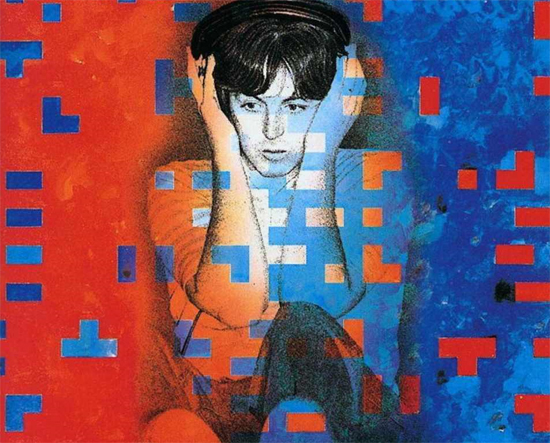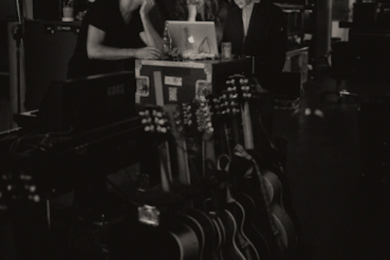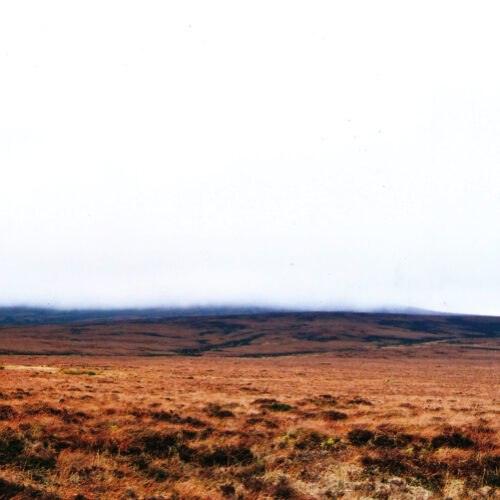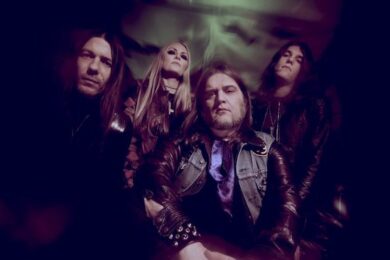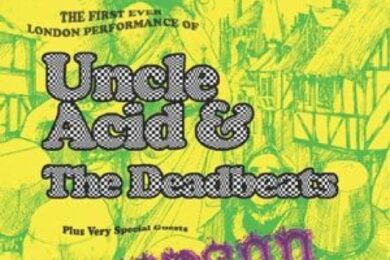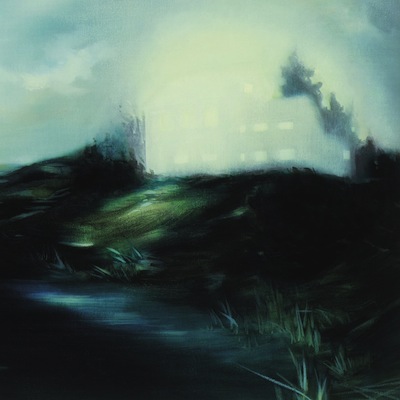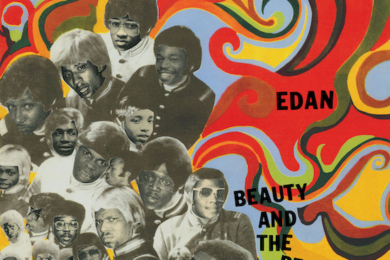Of course, at their simpering, ingratiating worst, Paul McCartney and Wings were dreadful. Only those who don’t really care that much would ever try to deny it. Drooping ballads, cellophaned rockers; overdressed wedding cakes, with empty space underneath the icing. And of course, none of it — not one note — stands comparison with . . . yeah, yeah, yeah. There’s a sense in which these records really are what the boys will tell you, the jangling small change of a bankrupt talent. “You’re my baby and I love you / You can take a pound of love and cook it in the stew.” Christ al-fucking-mighty.
And yet — you’d be surprised. All but the sourest acknowledge those moments when everything falls into place: ‘Maybe I’m Amazed’, ‘Jet’, ‘Live And Let Die’, ‘Coming Up’. Received wisdom tells us that these are anomalies, McCartney hitting targets purely by chance, correct like a broken clock. Well, not quite. The patient (and the slightly perverse) can find much to enjoy, if not always to admire, in these insignificant million-selling albums. The really good songs are really good. The others are . . . something else. McCartney’s Seventies output is, if nothing else, unpredictable — rare enough in mainstream rock at that time — and in its way, it’s very strange indeed. Listening to this music, one finds oneself asking time and time again: what the hell is this? What did he think he was doing? This need not be a negative response.
Though they feature a great many pale burlesques of funk or blues or disco or doo-wop, these records occupy a unique space within pop — in some ways, they’re barely recognisable as pop music at all. Except in the most superficial sense, they bear no relation to the work of McCartney’s contemporaries, nor to anything that came before (or has come since). Not because they’re personal — McCartney let little of himself into his work — nor because they push back boundaries, or break new ground (they do neither). They just seem to ignore most of pop’s basic obligations. Few of these songs mean anything at all; they’re rarely exciting in a purely visceral sense; they never tell a story, or attempt to blow your mind; they’re seldom uplifting, or plaintive, or gross. They are utterly useless objects, which seem content simply to exist. This is their (very) peculiar charm.
They’re inconceivably odd, too, with their preposterous lack of purpose and unusual concerns. McCartney makes unfathomable choices, seems totally disconnected, takes countless baffling left-hand turns. While often pedestrian, or even downright bland, the music feels strangely haphazard. The lyrics are so stupid, so entirely without meaning, they induce a kind of disorientation that’s practically Dadaesque (“I was talking to an eskimo / Said he was hoping for a fall of snow / When up popped a sealion, ready to go . . .”). This stuff is staggering. How could an artist who was never that eccentric, at least by rock & roll standards — hardly the Everyman he’d have us believe, but certainly no loon — drift so far out, and not even know it?
The answer is clear, if you look closely. A natural homebody, famously protective of his sanity, Macca had never strayed too close to the edge — yet his isolation from everyday life was by now pretty much complete. Unwilling to embrace this, as many (now-dead) rock stars did, but too egocentric to step out of the spotlight, he seemed to go into denial. His early solo songs are defiantly down-to-earth, or else playfully poetic in a pseudo-Dylanish manner. But if McCartney was both down-home and out-there, he lacked The Band’s authentic grit, or the adroit freakiness of a Bowie or Bolan. Those forced, often foolish lyrics expose the depth of his alienation — they make him sound something of an oddball. Half the time he was singing the first thing that came into his head, and his head was by this point a very strange place. Musically he’d reached an impasse: nowhere to go, nothing to prove, unable (and unwilling) to stop. To his credit, he chose not to run on the spot, like many Sixties stars at the same dead end. Instead, he ran in twenty directions at once, which still takes you nowhere but looks rather strange. When the results are even vaguely coherent, we hear something that might be mistaken for The Beatles’ bright eclecticism — more often, songs emerge deformed and barely functioning. And in their way, those songs are fascinating; now and then, they’re truly fantastic.
The records Paul McCartney made in the first ten years after leaving The Beatles are eight parts ego-tripping superstar schlock to two parts outsider art. They have all the slickness of Seventies AOR, but at second glance they’re as disassociated as Wesley Willis. No other major rock star would make an album quite like Ram, so cosy and so conflicted. No other major rock star would think to write a song about his Land Rover, or Fungus The Bogeyman. While his peers were mining Robert Johnson’s ‘Crossroads’, McCartney was covering the theme from Crossroads. The man was in a world of his own.
His infamous lack of self-awareness also played its part. For one who seems so self-conscious on camera, and goes to such great lengths to control his public image, Paul McCartney has never had much idea of how he comes across — whether lecturing a recalcitrant Harrison in Let It Be, claiming in Anthology (with practised faux-modesty) that Spielberg learnt a lot from Magical Mystery Tour, or peppering these Wings tracks with strange vocal tics and bursts of ad-libbed bollocks, which induce only cringing embarrassment (‘C Moon’; ‘Famous Groupies’; ‘Uncle Albert / Admiral Halsey’). In the blithely boogieing ‘Rock Show’, he imagines himself in his own audience, at one of Wings’ enormous stadium shows. When Pete Townshend did the same, we got the self-immolation of ‘The Punk And The Godfather’ — the rocker as parasite, stardom as betrayal. Paul’s idea of life as a rock & roll consumer is somewhat more benign: “The tension mounts / You score an ounce.”
Dope was another major factor in Wings’ genial weirdness. McCartney’s gluttonous cannabis consumption has always been a bit of a joke, as tired as cracks about Elvis’ weight or Elton John’s toupee. It’s essential, though, to any understanding of his work — those first ten solo albums contain the most unmistakably pot-inspired music ever committed to posterity. Not because they’re spaced-out, or laid-back. They reflect the reality of the everyday toker: lazy, whimsical, totally unfocussed, brimming with bright ideas, which buzz around for a moment or two before vanishing like burning paper. Macca in the Seventies — as settled domestically as any rock star could be, suspended securely in the amniotic fluid of his ego — abandoned himself to grass not to ease the pain of alienation (as with those contemporaries who hit the booze and smack), nor to plump up the thrill of being so special (like the LA cocaine crowd), but just because he liked it, and had nothing better to do. McCartney’s relationship with pot was long and faithful, and by the 1970s he was deep inside himself — padding around in a grandad shirt, those famous brown eyes drooping at the sides, infantile and open to anything. That bonged-out lack of discipline encouraged the opaque solipsism of his worst post-Beatles music. It also helped enable those rather strange decisions which led to the very best of it.
In the 1980s, though, the pickings grew slim. McCartney remained quietly outlandish — no one else could (or would) have written ‘Spies Like Us’, an oddly-tasty kedgeree of Jan Hammer, The Art Of Noise, Julian Cope’s ‘Sunspots’ and the theme from some duff Dan Ackroyd movie (which is what it was). No one else could (or would) have released a single whose chorus went “Tell me where to press / Right there, that’s it, yes”. But after the freakish McCartney II, his Eighties albums, strange as they are, congeal into an adult-contemporary mush; only Tug Of War is really worth a listen, and (apart from the song about the international currency market) this is down to its warm, melodic charm, not its power to startle or disorientate. In the last fifteen years his music has grown quieter and more obviously introspective, “better” in every respect but one: it’s a bit boring. You know what it is, you can see what he’s doing. McCartney in the Seventies was never like that.
So Paul McCartney and Wings remain a joke, in some ways rightly so. At their simpering, ingratiating worst . . . yeah, yeah, yeah. No one would argue that the decade saw the best of him. But properly sieved, these records supply much that is rich and bewildering — and here and there, the kind of thing that only Paul McCartney could do. No one else carved out a career that was quite this strange and singular, because no one else had such colossal, mismatched strengths and weaknesses. Those of us who value Paul McCartney, in all his flawed, fucked-up, batshit glory, wouldn’t have him any other way.
There’ll never be another, you know.
10 Slightly Lesser Known Classics
=================================
The Back Seat Of My Car (1971)
An obvious throwback to the pocket symphonies of Abbey Road (and McCartney’s mid-Sixties Beach Boys obsession), ‘Back Seat Of My Car’ is showy, rambling and ludicrously overblown. And it’s absolutely glorious. Placed at the end of the aimless-but-amiable Ram, it rises like a beast from the level sea, a roaring reminder of what Paul McCartney could always do when he tried.
Temporary Secretary (1980)
1980’s McCartney II is a very odd record indeed, not always pleasantly so (I am indeed thinking of that song about Fungus The Bogeyman), but at its best it’s amazingly adventurous, by far the most challenging music Paul McCartney made between leaving The Beatles and his much-later work as The Fireman. This babbling startler — panned incredulously on its release, recently discovered by slowcoach hipsters — is a three-way split between some strange idea of the music of the future, a corny faux-showtune and some random wank fantasy about a girl in black-rimmed specs and a pencil skirt. Spoilt only by the cod-Yankee accent McCartney adopted around this time to mask the ebbing of his vocal range, it is, in its own way, and in its proper context, as extreme a record as ‘Strawberry Fields Forever’.
Give Ireland Back To The Irish (1972)
Shortly after Bloody Sunday, Wings rush-released what could be the chirpiest song ever inspired by mass death (which was quite predictably banned by every media outlet in the UK). “Great Britain — you are tremendous!” begins Macca, before wagging an admonishing finger: “But REALLY, what ARE you doing . . .” It’s totally out of character (and therefore fascinating), and unintentionally hilarious (though the brother of Wings guitarist Henry McCullough, then living in Belfast, wasn’t laughing so hard — he paid for Paul’s newly-found convictions with a sectarian back-alley kicking). John Lennon, still taken seriously as an artist and radical, also responded to Bloody Sunday, by slipping wads of cash to the IRA from his cosy New York eyrie and writing his own would-be rebel song: the jaw-dropping ‘Luck Of The Irish’, on which Yoko Ono sings “Let’s walk over rainbows like leprechauns”, and “the world could be one big Blarney Stone”, as though wearing a plastic hat in the shape of a pint of Guinness. ‘Give Ireland Back To The Irish’ is Yeats by comparison, and what it lacks in gravitas it makes up for with sheer, breathtaking chutzpah. And it worked: just 27 years later, the Good Friday agreement was signed. Thumbs aloft!
Secret Friend (1980)
From the B-side of ‘Temporary Secretary’, prefiguring electronica, post-rock and ambient, like it ain’t no thang. ‘Secret Friend’ is weightless and gorgeous, perhaps the furthest out McCartney ever got; a blueprint for another Eighties, one he chose to disregard. It’s Macca deep in his analogue bubblebath, puffing on a fat one and contemplating the music of the spheres, before hauling himself up to make the kids some lunch.
Old Siam, Sir (1979)
The final Wings LP, Back To The Egg, is as weak as its stupid title, full of charmless musical gibberish. Even by his own standards McCartney is winging it, typified by two tracks featuring The Rockestra, a gruesome assembly of r&r lags hired as hod-carriers for Paul’s Wall Of Sound. This galaxy of aging talent rumbles through a single lumbering riff, occasionally breaking off to shout — and this is true — “Why haven’t I had any dinner?” In many ways, ‘Old Siam, Sir’ (thankfully minus the Rockestra) is just another throwaway, the clenched power-pop of Cheap Trick or The Knack submerged beneath lazy old solos from (what was fast becoming) another age. What makes it so much better is the detail: the peculiarly restless drumbeat, the indulgent richness of the instrumental breaks, the nonsensical energy of that throaty late-30s vocal. It has to be said that the video does them very few favours — staged bonhomie, Macca in a tight white T-shirt to denote rugged authenticity — but ‘Old Siam, Sir’ is the last worthwhile Wings track, inutile but strangely addictive.
Dear Friend (1971)
Wings’ debut Wild Life is generally considered the low point of Paul McCartney’s career, and not entirely without reason. Recorded in a week (though it could have been quicker), it sounds like what it is: a band who barely know each other, kicking round some half-written songs on a few stoned afternoons. Still, there are one or two moments, if you manage to swim through oceans of ordure like ‘Bip Bop’. ‘Dear Friend’ is marvellous, a rare glimpse of McCartney with his guard down, saddened and sore from the falling-out with Lennon, toying with his pain like a self-centred man trying to come to terms with loss (and the fact that his ex-best mate now thinks he’s a tosser). As olive branches go it’s somewhat barbed, but despite the carefully-phrased ambivalence it’s clear that Paul was reaching out. A few months later he got a response, in the unwelcome shape of ‘How Do You Sleep?’
Girls’ School (1977)
Bored on a plane during Wings’ American tour of 1976, Paul was flicking through a dirty magazine, chuckling over ads for super-8 prints of low-end Seventies grot movies. Inspiration can come from anywhere: within minutes (probably), he’d written ‘Girls’ School’, a rocking synopsis of a jailbait porn film which only existed in his head. A beautiful, fleeting detail: when the schoolmarms show their stag films in the classroom, “they put the paper on the windows.” ‘Girls’ School’, with its bawdy slyness, would be enjoyable enough if recorded by The Faces or Slade, but the fact that this is a Wings track amplifies the effect (and the song is all about effect). Pleasingly, it came out as the B-side of ‘Mull Of Kintyre’, assuring a place in a million grannies’ record collections for a lyric which begins “Sleepyhead kid sister / Lying on the floor / 18 years and younger, boy / Well she knows what she’s waiting for.”
Let ‘Em In (1976)
There’s a party at Paul McCartney’s house. Who’s invited? His family, Martin Luther and the Everly Brothers. And they’d better get a shift on — the lulled, loping feel of ‘Let ‘Em In’ suggests that Paul started without them, at lunchtime. One of the vaguest hits of the decade, not so much a song as a faint after-image, ‘Let ‘Em In’ is tenebrous despite itself. An extraordinarily eerie record.
Hi, Hi, Hi (1972)
When he wasn’t singing total gibberish, McCartney’s themes were fairly constant: sex, drugs, rock & roll and marriage. ‘Hi, Hi, Hi’ covers (at least) three of these. This saucy, bumptious thing was banned by the BBC, though partly because someone misheard the words as “I want you to lie on the bed, get you ready for my body gun.” The actual lyric is even funnier, if faintly disturbing: “I want you to lie on the bed, get you ready for my polygon”. One suspects that there were only two people in the world who found that line arousing, both of whom appear in this video. Unconventional eroticism aside, ‘Hi, Hi, Hi’ is a fine example of early 70s bubblegum raunch, Suzi Quatro after the watershed.
Check My Machine (original mix) (1980)
Just an extended fiddle with some new recording gear in McCartney’s home studio, ‘Check My Machine’ is ambient Japanese funk, or dubbed-out Bee Gees hip-hop, entirely by accident — magic spilling from his pockets. There’s a sense in which the best tracks from McCartney II are deeply frustrating. Had he been this loose and open for the whole of the previous decade — rather than riding the last rays of his youth, with an increasingly dysfunctional ersatz Beatles — Paul McCartney could have made more music like this, not just diverting but truly astonishing, not just weird but wired to the trembling stars. But then there were others to carry that particular load, none of them longing, under it all, to make Give My Regards To Broad Street, or write kids’ songs about Rupert The Bear. There was, however, only one Paul McCartney.

